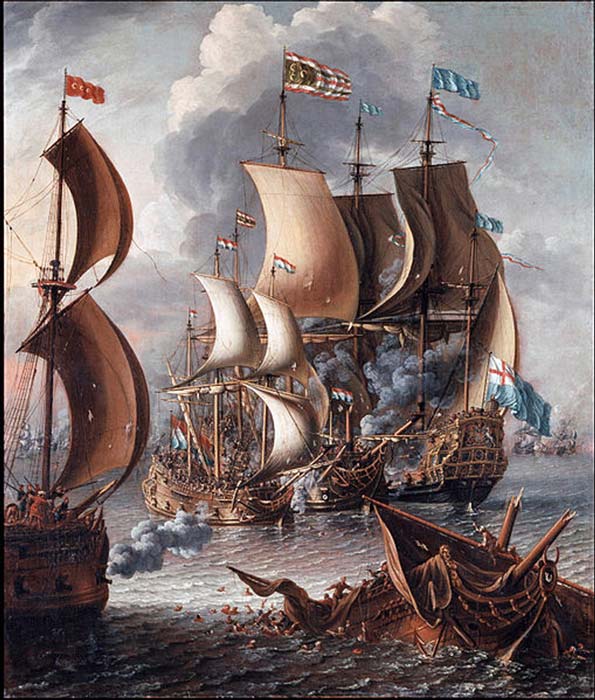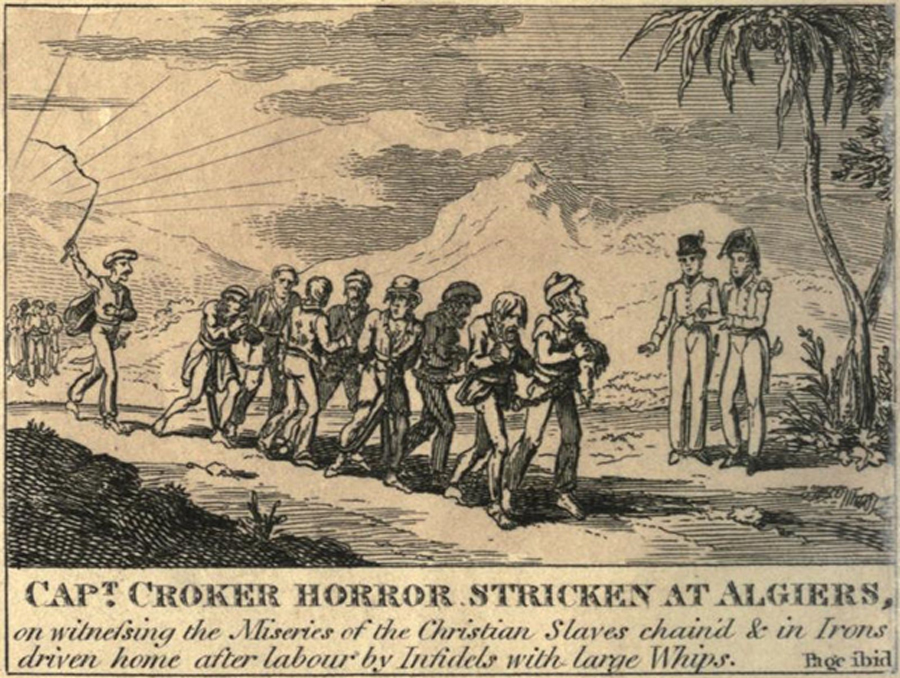
The Price for Peace: The First Barbary War
In 1785, John Adams and his wife Abigail made their home in London. John was the newly appointed American ambassador to Great Britain. It was already bad enough that America was a free and independent nation let alone that it had an ambassador. Nonetheless, John Adams was optimistic about his task and eager to gain a treaty to trade with Great Britain, despite British skepticism to the idea of trading with the colonists. The war had just ended and tensions were still high, for Britain suffered a serious loss economically, influentially and her pride had suffered more. Thus, Britain kept America at bay on the trade front. Subsequently John Adams wrote back to the Foreign Secretary John Jay informing him that no progress had been made between the two nations concerning trade.
Mediterranean Piracy
In February of 1786, the ambassador of Tripoli arrived in London. Adams saw the opportunity of establishing trade relations between their two nations, an ideal that fellow politician Thomas Jefferson had been pursuing. Two years prior in 1784, an American vessel, the Betsey along with ten of its crew, had been captured by a Moroccan corsair, as well as two American merchant vessels, the Dauphin and Maria, including 21 crewmen and passengers, had also been captured. John Jay had authorized both Jefferson and Adams to offer a payment of $80,000 as a tribute to the Barbary States.
The term Barbary States refer to four Muslim nations located in North Africa. They included Morocco, Algeria, Tunis and Tripoli. Three out of the four states; Algeria, Tunis, and Tripoli; were regencies under the Ottoman Empire, while Morocco remained independent from Ottoman influence and rule.

A Sea Fight with Barbary Corsairs by Castro, Lorenzo (after 1681) (Public Domain)
Although John Jay had allocated up to $80,000 to be paid to the pirates for peace, both Adams and Jefferson investigated to establish the price other nations were paying for peace, in order to trade throughout the Mediterranean. To their surprise, many of the nations were paying an annual price in order to trade without restriction. Jefferson and Adams knew that they had to find a better way, for the price of peace may become too costly for their new nation. With this in mind, in 1786, John Adams decided late one night to pay a visit to Ambassador Abdrahaman who represented Tripoli.
Ambassadorial Shenanigans
The Ambassador greeted Adams with great respect and smoking tobacco in pipe bowls at the fire place, they discussed issues of national interest and cooperation, but to no avail. Adams made the argument that America had no reason to be at war with the Barbary States particularly Tripoli, but Ambassador Abdrahaman insisted that Tripoli was at a war with America. America needed to pay in order to play. Adams’ predicament was that trade was crucial to the economy of the United States, for Great Britain had given it the cold shoulder and France turned out to be a dud on the trade market. The Mediterranean was the best place to send American merchant ships to conduct business. On parting that evening, the Ambassador informed Adams that if he wanted peace, he had to seek peace with Tripoli first, then with the sultan in Constantinople, and lastly with Algiers and Morocco.

British captain witnessing the miseries of Christian slaves in Algiers, 1815 (Public Domain)
Three days later, Ambassador Abdrahaman stopped by John Adams’ residency in London and pressured Adams into signing a peace treaty to ensure that war would not break out between the two nations, despite the fact that the Ambassador had previously explicitly stated that America and Tripoli were at war with one another. Ambassador Abdrahaman also warned that should a war break out, the prisoners would be sold into slavery, unlike Christians who treated their prisoners humanely. After the meeting had taken place, Adams hastily sent word to Thomas Jefferson in Paris to meet him in London to discuss the Ambassador Abdrahaman’s proposals.




